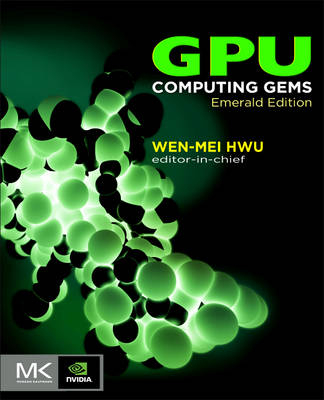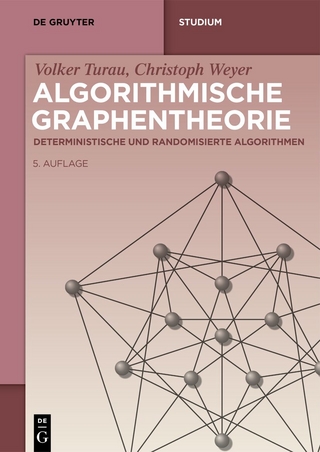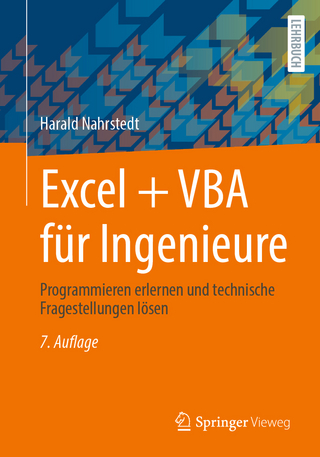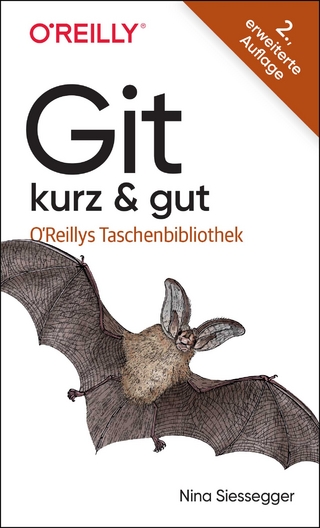
GPU Computing Gems
Morgan Kaufmann (Verlag)
978-0-12-384988-5 (ISBN)
Jerry) Sanders III-Advanced Micro Devices Endowed Chair in Electrical and Computer Engineering in the Coordinated Science Laboratory of the University of Illinois at Urbana-Champaign. His research interests are in the areas of architecture, implementation, and software for high-performance computer systems. He is the director of the OpenIMPACT project, which has delivered new compiler and computer architecture technologies to the computer industry since 1987. He also serves as the Soft Systems Theme leader of the MARCO/DARPA Gigascale Silicon Research Center (GSRC). He is the co-author of best-seller Programming Massively Parallel Processors.
Graphics Processing Units (GPUs) are designed to be parallel – having hundreds of cores versus traditional CPUs. Increasingly, you can leverage GPU power for many computationally-intense applications, not just for graphics. If you’re facing the challenge of programming systems to effectively use these massively parallel processors to achieve efficiency and performance goals, GPU Computing Gems provides a wealth of tested, proven GPU techniques.
Different application domains often pose similar algorithm problems, and researchers from diverse application domains often develop similar algorithmic strategies.
GPU Computing Gems offers developers a window into diverse application areas, and the opportunity to gain insights from others' algorithm work that they may apply to their own projects.
Learn from the leading researchers in parallel programming, who have gathered their solutions and experience in one volume under the guidance of expert area editors. Each chapter is written to be accessible to researchers from other domains, allowing knowledge to cross-pollinate across the GPU spectrum.
Key Features
- A snapshot of the state of GPU computing in ten critical domains, edited by Wen-mei W. Hwu with experts from NVIDIA and instructors from leading GPU programs worldwide
- Many examples leverage NVIDIA's CUDA parallel computing architecture, the most widely-adopted massively parallel programming solution
- Offers insights and ideas as well as practical
hands-on
skills you can immediately put to use
Wen-mei W. Hwu is the Walter J. ("Jerry") Sanders III-Advanced Micro Devices Endowed Chair in Electrical and Computer Engineering in the Coordinated Science Laboratory of the University of Illinois at Urbana-Champaign. From 1997 to 1999, Dr. Hwu served as the chairman of the Computer Engineering Program at the University of Illinois. Dr. Hwu received his Ph.D. degree in Computer Science from the University of California, Berkeley. His research interests are in the areas of architecture, implementation, and software for high-performance computer systems. He is the director of the OpenIMPACT project, which has delivered new compiler and computer architecture technologies to the computer industry since 1987. He also serves as the Soft Systems Theme leader of the MARCO/DARPA Gigascale Silicon Research Center (GSRC) and on the Executive Committees of both the GSRC and the MARCO/DARPA Center for Circuit and System Solutions. For his contributions to the areas of compiler optimization and computer architecture, he received the 1993 Eta Kappa Nu Outstanding Young Electrical Engineer Award, the 1994 Xerox Award for Faculty Research, the 1994 University Scholar Award of the University of Illinois, the 1997 Eta Kappa Nu Holmes MacDonald Outstanding Teaching Award, the 1998 ACM SigArch Maurice Wilkes Award, the 1999 ACM Grace Murray Hopper Award, the 2001 Tau Beta Pi Daniel C. Drucker Eminent Faculty Award. He served as the Franklin Woeltge Distinguished Professor of Electrical and Computer Engineering from 2000 to 2004. He is a fellow of IEEE and ACM.
Editors, Reviews, and Authors
Introduction
Section 1: Scientific Simulation
Chapter 1: GPU-Accelerated Computation and Interactive Display of Molecular Orbitals
Chapter 2: Large-Scale Chemical Informatics on GPUs
Chapter 3: Dynamical Quadrature Grids: Applications in Density Functional Calculations
Chapter 4: Fast Molecular Electrostatics Algorithms on GPUs
Chapter 5: Quantum Chemistry: Propagation of Electronic Structure on GPU
Chapter 6: An Efficient CUDA Implementation of the Tree-based Barnes
Chapter 7: Leveraging the Untapped Computation Power of GPUs: Fast Spectral Synthesis Using Texture Interpolation
Chapter 8: Black Hole Simulations with CUDA
Chapter 9: Treecode and Fast Multipole Method for N-body Simulation with CUDA
Chapter 10: Wavelet-based Density Functional Theory Calculation on Massively Parallel Hybrid Architectures
Section 2: Life Sciences
Chapter 11: Accurate Scanning of Sequence Databases with the Smith-Waterman Algorithm
Chapter 12: Massive Parallel Computing to Accelerate Genome-Matching
Chapter 13: GPU-Supercomputer Acceleration of Pattern Matching
Chapter 14: GPU Accelerated RNA Folding Algorithm
Chapter 15: Temporal Data Mining for Neuroscience
Section 3: Statistical Modeling
Chapter 16: Parallelization Techniques for Random Number Generations
Chapter 17: Monte Carlo Photon Transport on the GPU
Chapter 18: High Performance Iterated Function Systems
Section 4: Emerging Data-intensive Applications
Chapter 19: Large Scale Machine Learning
Chapter 20: Multiclass Support Vector Machine
Chapter 21: Template Driven Agent Based Modeling and Simulation with CUDA
Chapter 22: GPU-Accelerated Ant Colony Optimization
Section 5: Electronic Design Automation
Chapter 23: High Performance Gate-Level Simulation with GP-GPUs
Chapter 24: GPU-Based Parallel Computing for Fast Circuit Optimization
Section 6: Ray Tracing and Rendering
Chapter 25: Lattice-Boltzmann Lighting Models
Chapter 26: Path Regeneration for Random Walks
Chapter 27: From Sparse Mocap to Highly-detailed Facial Animation
Chapter 28: A Programmable Graphics Pipeline in CUDA for Order Independent Transparency
Section 7: Computer Vision
Chapter 29: Fast Graph Cuts for Computer Vision
Chapter 30: Visual Saliency Model on Multi-GPU
Chapter 31: Real-Time Stereo on GPGPU Using Progressive Multi-Resolution Adaptive Windows
Chapter 32: Real-Time Speed-Limit-Sign Recognition on an Embedded System Using a GPU
Chapter 33: Haar Classifiers for Object Detection with CUDA
Section 8: Video and Image Processing
Chapter 34: Experiences on Image and Video Processing with CUDA and OpenCL
Chapter 35: Connected Component Labeling in CUDA
Chapter 36: Image Demosaicing
Section 9: Signal and Audio Processing
Chapter 37: Efficient Automatic Speech Recognition on the GPU
Chapter 38: Parallel LDPC Decoding
Chapter 39: Large-Scale Fast Fourier Transform
Section 10: Medical Imaging
Chapter 40: GPU Acceleration of Iterative Digital Breast Tomosynthesis
Chapter 41: Parallelization of Katsevich CT Image Reconstruction Algorithm on Generic Multi-Core Processors and GPGPU
Chapter 42: 3-D Tomographic Image Reconstruction from Randomly Ordered Lines with CUDA
Chapter 43: Using GPUs to Learn Effective Parameter Settings for GPU-Accelerated Iterative CT Reconstruction Algorithms
Chapter 44: Using GPUs to Accelerate Advanced MRI Reconstruction with Field Inhomogeneity Compensation
Chapter 45: l1 Minimization in l1-SPIRiT Compressed Sensing MRI Reconstruction
Chapter 46: Medical Image Processing Using GPU-accelerated ITK Image Filters
Chapter 47: Deformable Volumetric Registration Using B-splines
Chapter 48: Multi-scale Unbiased Diffeomorphic Atlas Construction on Multi-GPUs
Chapter 49: GPU-accelerated Brain Connectivity Reconstruction and Visualization in Large-Scale Electron Micrographs
Chapter 50: Fast Simulation of Radiographic Images Using a Monte Carlo X-Ray Transport Algorithm Implemented in CUDA
Index
| Erscheint lt. Verlag | 21.3.2011 |
|---|---|
| Reihe/Serie | Applications of GPU Computing Series |
| Verlagsort | Boston, MA (USA) |
| Sprache | englisch |
| Maße | 197 x 240 mm |
| Gewicht | 1497 g |
| Themenwelt | Mathematik / Informatik ► Informatik ► Software Entwicklung |
| ISBN-10 | 0-12-384988-8 / 0123849888 |
| ISBN-13 | 978-0-12-384988-5 / 9780123849885 |
| Zustand | Neuware |
| Haben Sie eine Frage zum Produkt? |
aus dem Bereich


